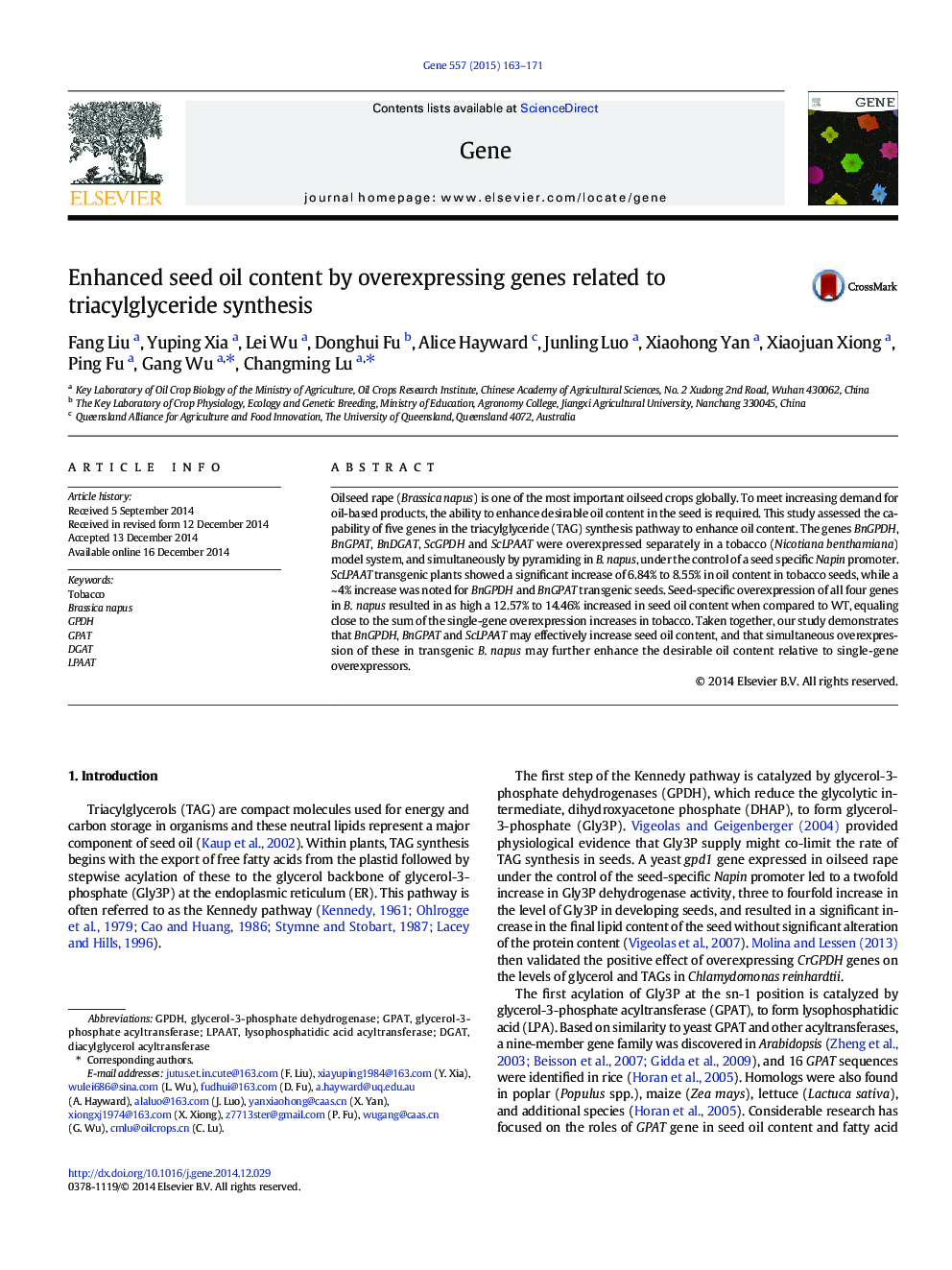| کد مقاله | کد نشریه | سال انتشار | مقاله انگلیسی | نسخه تمام متن |
|---|---|---|---|---|
| 5905520 | 1159904 | 2015 | 9 صفحه PDF | دانلود رایگان |
- We choose five candidate genes encoding enzymes of the TAG biosynthetic pathway.
- We express candidate genes separately in tobacco under seed specific promoter.
- Three genes effectively increase seed oil content when expressed separately.
- We express candidate genes by pyramiding in Brassica napus under Napin promoter.
- Simultaneous expression of genes may further enhance the desirable oil content.
Oilseed rape (Brassica napus) is one of the most important oilseed crops globally. To meet increasing demand for oil-based products, the ability to enhance desirable oil content in the seed is required. This study assessed the capability of five genes in the triacylglyceride (TAG) synthesis pathway to enhance oil content. The genes BnGPDH, BnGPAT, BnDGAT, ScGPDH and ScLPAAT were overexpressed separately in a tobacco (Nicotiana benthamiana) model system, and simultaneously by pyramiding in B. napus, under the control of a seed specific Napin promoter. ScLPAAT transgenic plants showed a significant increase of 6.84% to 8.55% in oil content in tobacco seeds, while a ~Â 4% increase was noted for BnGPDH and BnGPAT transgenic seeds. Seed-specific overexpression of all four genes in B. napus resulted in as high a 12.57% to 14.46% increased in seed oil content when compared to WT, equaling close to the sum of the single-gene overexpression increases in tobacco. Taken together, our study demonstrates that BnGPDH, BnGPAT and ScLPAAT may effectively increase seed oil content, and that simultaneous overexpression of these in transgenic B. napus may further enhance the desirable oil content relative to single-gene overexpressors.
Journal: Gene - Volume 557, Issue 2, 25 February 2015, Pages 163-171
